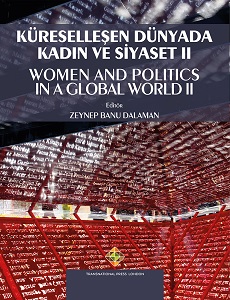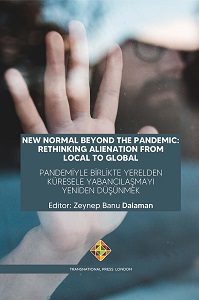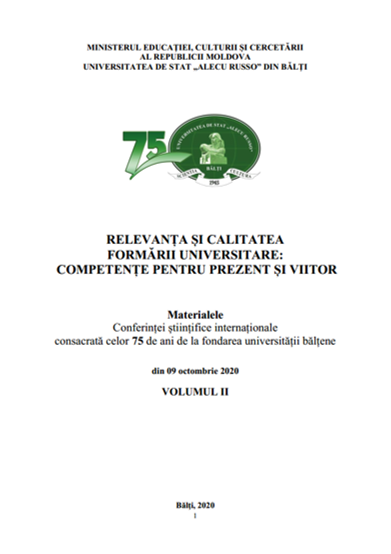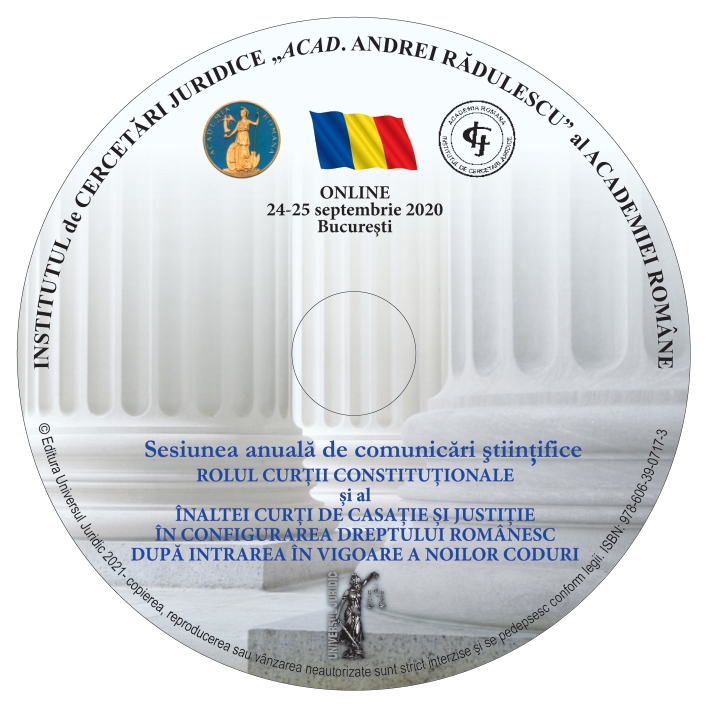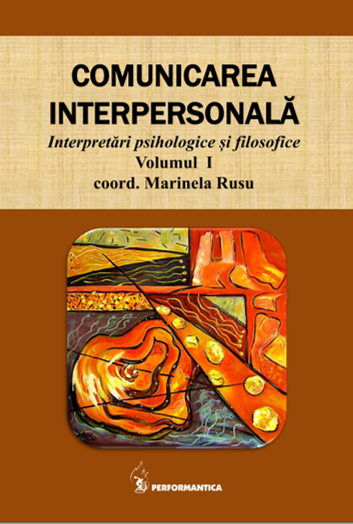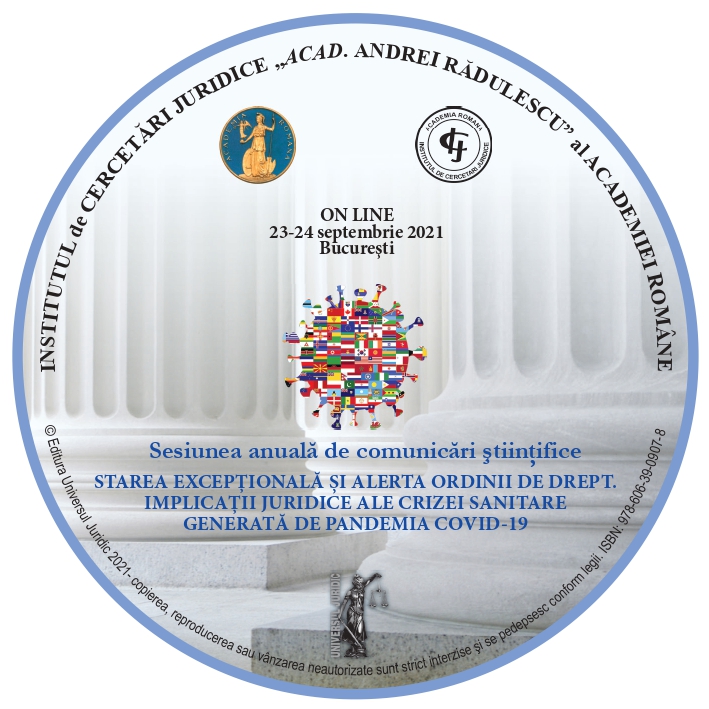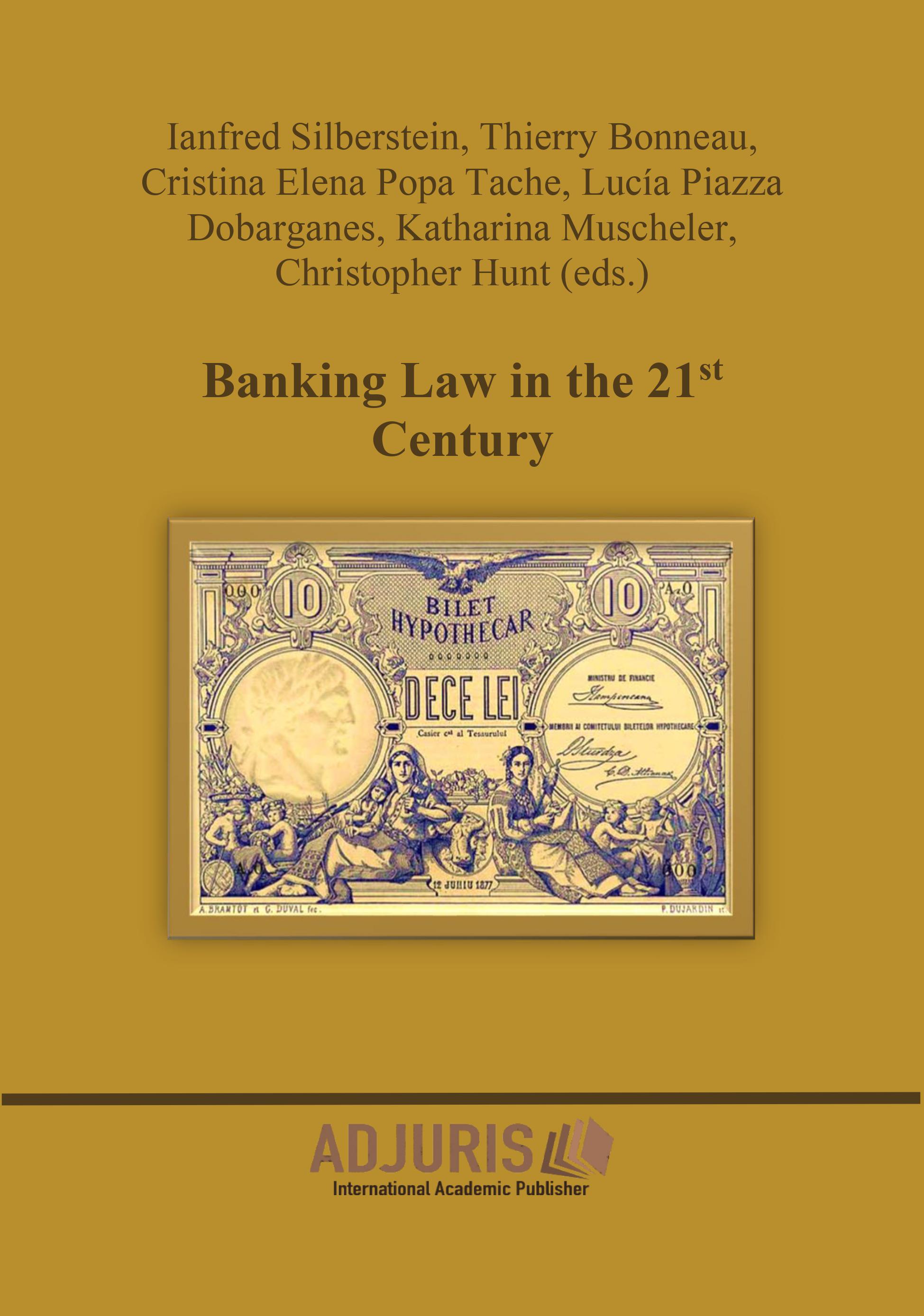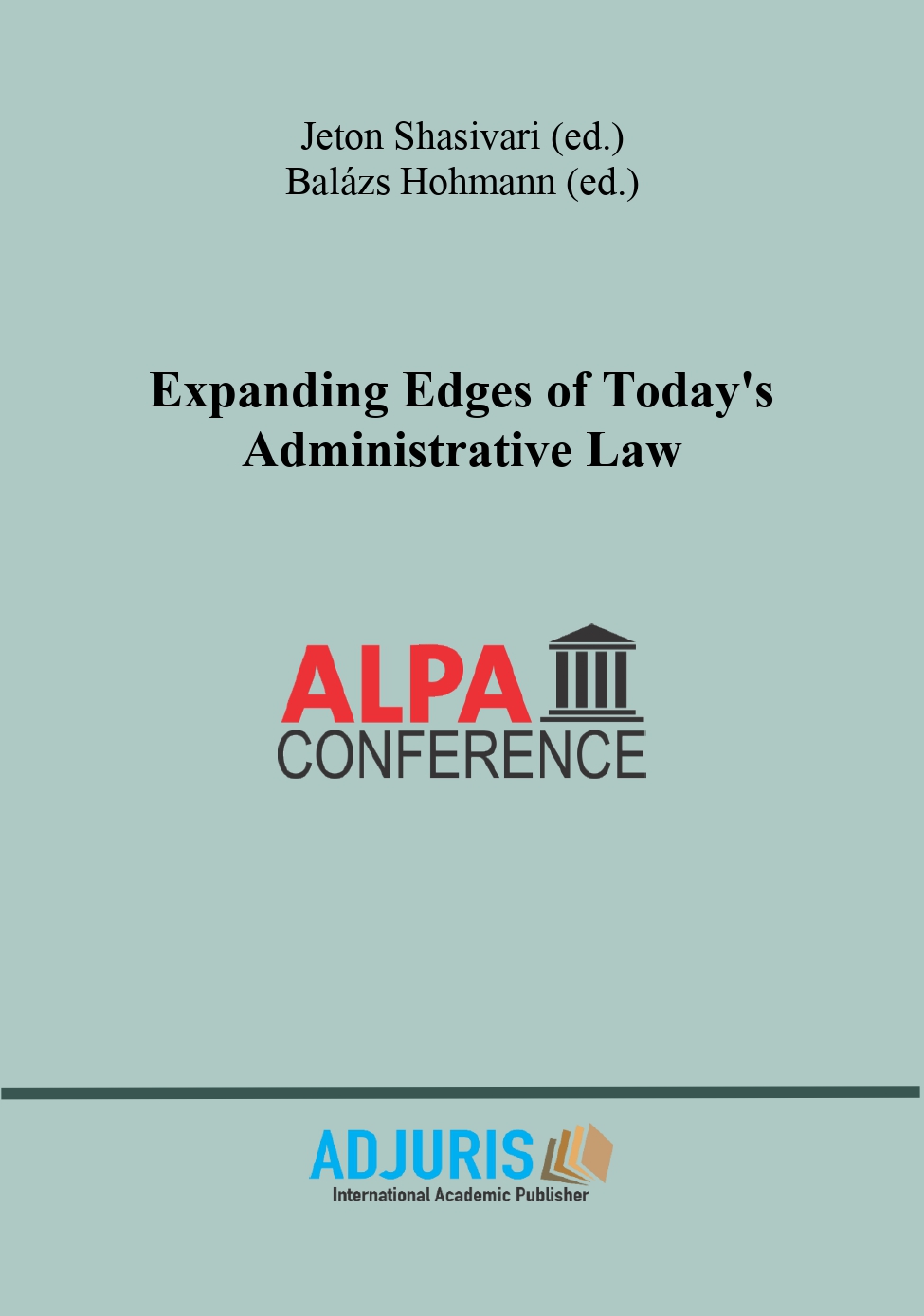Author(s): Marius Catalin Mitrea / Language(s): Romanian
Publication Year: 0
The COVID-19 pandemic has fundamentally changed the global pace, leaving strong marks especially on the economy, people and interpersonal social relations. Faced with an exceptional situation, EU Member States have put in place exceptional measures to combat the pandemic, including by restricting fundamental rights and freedoms, to protect the public health. In order to limit the effects of COVID-19, EU states have restricted non-essential cross-border travel. The effects of restricting free movement have severely affected Member States' economies and decision-makers have sought the best solutions to speed up their recovery. Initiated by the European Commission, the idea of implementing for EU citizens a standardized document dedicated to facilitate a safe free movement during the COVID-19 pandemic has progressed from the European Electronic Certificate to the EU Digital COVID Certificate, passing through numerous filters, receiving adjustments and improvements. Presented by the Commission as a necessary tool for reaffirming freedom of movement within the EU and reviving the economies of EU states, the EU Digital COVID Certificate must respect fundamental rights and freedoms, including the ones regarding the processed data and their protection. This scientific study will identify both the safeguards and the data protection risks of the EU Digital COVID Certificate, analyzing the context, the technical measures on data security, as well as the operations on collection, registration, organization, structuring, storage, extraction, consulting, using, restricting, deleting or destroying the data collected.
More...


